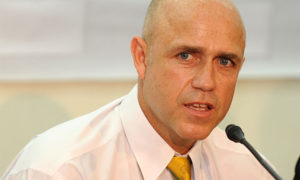Following on from my introductory article on the Three Principles of Optimal Performance. This excerpt is part one of two from my upcoming ebook on Optimal Performance.
In 1973 a Scotsman had a profound insight experience which led to the understanding of how human’s create their mental experience.
Sydney Banks was a welder who had emigrated to Canada as a young man, with little education, he had settled, married and made a modest life for himself.
Banks had an insight that led to a profound discovery. Prior to this experience he and his wife had decided to attend a relationship seminar. He was an anxious and insecure man, at the time he had been discussing his insecurity with a participant on the course who replied that he wasn’t insecure, he just thought he was, as he said later when describing this,
‘What I heard was: there’s no such thing as insecurity, it’s only thought. All my insecurity was only my own thoughts! It was like a bomb going off in my head … It was so enlightening! It was unbelievable … [And after that,] there was such beauty coming into my life.’ ( Long Beach lectures)
This insight led to an enlightenment experience which gave him insight into the way people psychologically create and experience their reality. This understanding, which has spread across fields of human wellness and performance, focuses on the inside-out nature of human experience and the common misconception that life is an outside-in experience.
What Banks saw was that people experience and feel their reality via their thinking in the present moment, rather than by the innocent illusion that life happens to them and they experience this via their feelings, as if thought was not part of this process.
This distinction allows people to see that they are experiencing their world via thought, rather than feeling. Thought and feeling are not separate, they are one and the same, two sides of the same coin, yet the feeling of the moment is created by thought. As the thought comes to consciousness it is communicated to the body instantaneously via the nervous system, to be experienced as feeling. Feeling is a critical feedback system on personal thinking, as it allows us to see how our thinking makes us feel, it literally lets our unconscious intelligence feedback to us whether our thinking is congruent with our inner wisdom. This understanding allows us to see what our thinking is creating for ourselves, moment by moment, we can begin to see and feel the clarity or flaws in our thinking.
It creates a space to be able to see that we are the creators of our own reality, metaphorically it’s like our brain (the thought factory) is a movie projector and the screen is our life, the brain is projecting the movie of our thinking onto the screen of our life. It’s a self created and generated reality.
A powerful and simple implication of this, is that the problems and stress that people experience in their lives, with relationships, with the ‘pressure’ of work, with family, with ‘stressful’ situations and significant others is actually their feeling of their own thinking. This is not them having a negative experience of another person, their partner for instance, it is them having an experience of their own thinking in the moment. They are not experiencing stress and anxiety from their partner, outside in, they are experiencing it inside – out, from the feeling of their thought about their partner.
With this understanding, we begin to see space between ourselves and our thinking, the beauty of this space is that the things that we believed stopped us from experiencing peace and happiness were never more than us experiencing our own thinking. That insight alone allows people to see what their thinking is producing for them, what reality the ‘thought factory’ creates. Banks came to call his understanding the Three Principles of Mind, Consciousness and Thought, in his book the Missing Link he describes them as;
Mind: The energy and intelligence of all life, whether in the form, or formless. The Universal Mind, or the impersonal mind, is constant and unchangeable. The Personal mind is in a perpetual state of change.
Consciousness: Consciousness is the gift of awareness. Consciousness allows the recognition of form, form being an expression of Thought.
Thought: The power of Thought is not self-created. Thought is a divine gift, which serves you immediately after you are born. Thought is the creative agent we use to direct us through life.
Psychologists who have been working with the three principles have seen profound changes in people suffering with alcoholism, drug dependency and mental illness, as they see for themselves that their suffering was the result of their contaminated thinking, as if they were running faulty software in the computer of their brain. Now that they can see their thinking for what it is, they can choose not to participate in illusory thinking. This in itself allows the thinking to drop away and they can be present in the moment, moment by moment, with their innate mental health. As they become more and more at one with themselves, their peace of mind, innate resilience and light heartedness becomes more present.
Part Two to follow …

